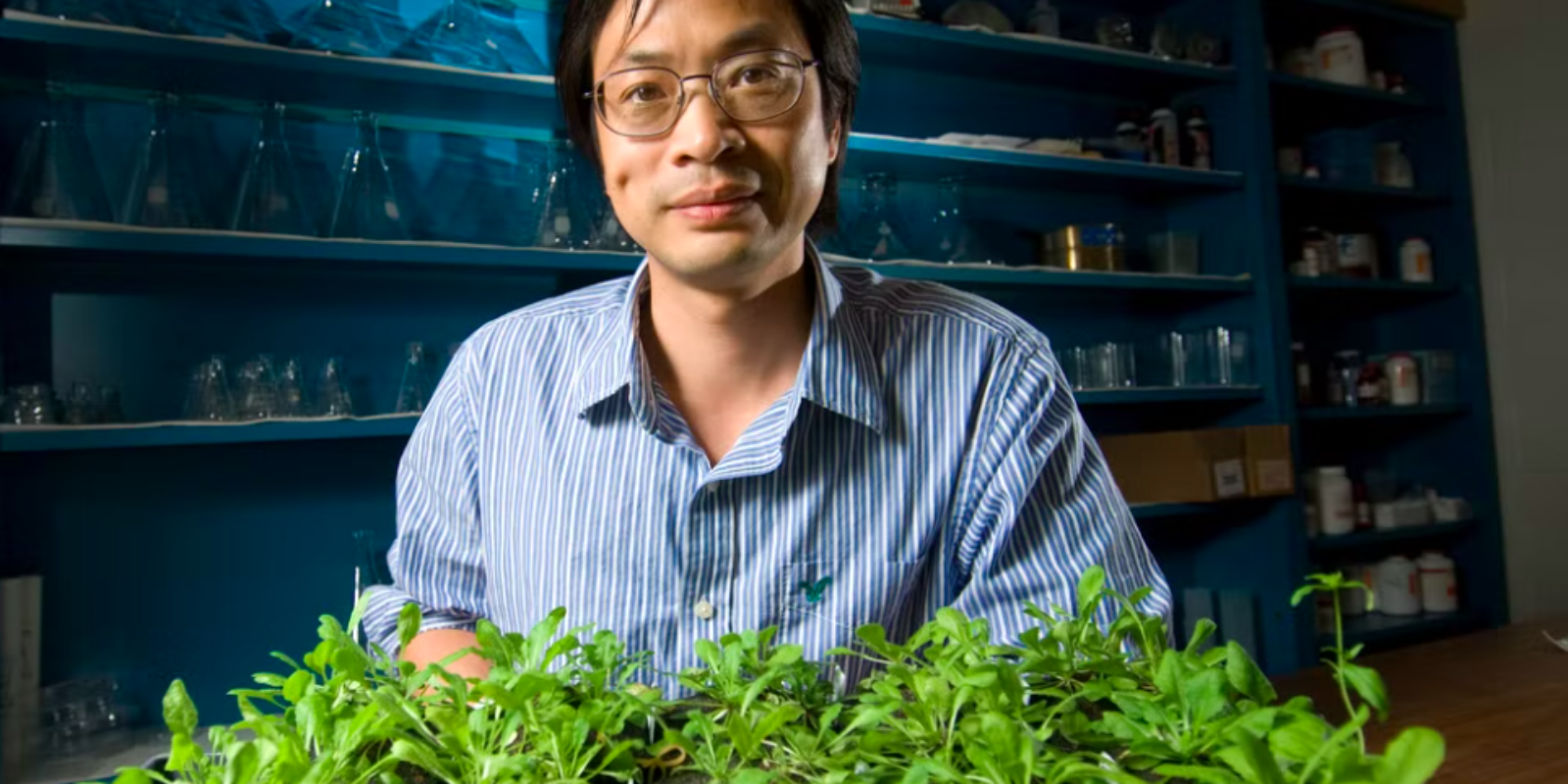This week’s ‘Global Food System Bite’ comes from an article titled Scientists engineer heatwave-resistant plants to help them survive climate change.
Modern agricultural methods mean around 40 per cent of all crops are currently lost to pests and diseases. But as the climate crisis worsens, the outlook is set to become even more grim. When heatwaves strike, crops can be decimated, hitting human food supplies, as well as the plants grown to feed livestock and for biofuel used in vehicle engines. Alongside drought, which high temperatures can exacerbate, plants’ defences are compromised by heat, leaving them prone to attacks by pathogens and insects. In Africa, where small-scale farmers grow much of the continent’s food, yields from staple crops such as maize have already been hit hard by climate change. A study published in 2019 found that rising temperatures and changes in rainfall patterns had slashed production of the crop by up to 33 per cent since 1980. As the world gets hotter, the problem is only likely to get worse. Unless action is taken to mitigate the effects of climate change, we could see a sharp increase in the number of people going hungry.
Impacts of Heatwaves on Food Production
Scientists have long known that plants’ immunity decreases as temperatures rise, making them more vulnerable to disease. However, the exact process by which this occurs has remained a mystery. Now, a team of scientists from US and Chinese institutions say they have solved the puzzle. have identified the exact process which leads to faltering plant immunity as temperatures rise, and have worked out a way to stop this process and bolster plants’ defences during periods of heat.

A new study has found that a common plant hormone could help crops to withstand extreme weather conditions. The research, which was carried out on a plant known as thale cress, found that the hormone salicylic acid can help plants to fight off predators and diseases. The findings could potentially be transferable to commonly grown crops, such as wheat, rice, and corn. This would help to maintain higher yields during periods of extreme weather. The research is still in its early stages, but it provides a promising glimpse into the potential of plant hormones to improve crop resilience.
Salicylic acid is a hormone produced by plants that helps them fight off predators and diseases. When a plant is under attack, the levels of salicylic acid in its tissues increase by up to seven-fold. This hormone activates the plant’s immune system, helping it to resist the attacker. Salicylic acid also plays a role in the plant’s response to stress, helping it to cope with environmental stresses such as drought or frost. However, over certain temperatures plants simply fail to ratchet up their salicylic acid levels, and as a result are unable to fend off pathogens or pests.
Heat-Proofing Crops
Scientists are interested in salicylic acid because it could help us to develop new ways of protecting crops from pests and diseases. For example, if we could find a way to trigger the production of salicylic acid in plants, we might be able to help them resist attacks more effectively. Alternatively, if we could develop inhibitors of salicylic acid production, we might be able to prevent plants from responding to stressors such as drought or frost.
Sheng-Yang He, a biology professor at North Carolina’s Duke University who led the study, said: “Plants get a lot more infections at warm temperatures because their level of basal immunity is down… So we wanted to know, how do plants feel the heat? And can we actually fix it to make plants heat-resilient?”

The team’s research began focusing on a type of cell called a phytochrome, which is like an internal thermometer. Phytochromes help plants to sense when temperatures are rising in the spring, triggering growth and flowering. However, the team found that even when they exposed mutant plants (whose phytochromes were constantly active) to higher temperatures, the plants still shut down their immune responses. This was because higher temperatures caused changes in the plant’s gene expression.
Instead, they turned their focus to next-generation sequencing to compare the plant’s genes at different temperatures, and it turned out that many of the genes that were suppressed at elevated temperatures were regulated by the same molecule, a gene called CBP60g.
“The CBP60g gene acts like a master switch that controls other genes,” the researchers said, “so anything that downregulates or ‘turns off’ CBP60g means lots of other genes are turned off, too. They don’t make the proteins that enable a plant cell to build up salicylic acid.”
They discovered that when heatwaves occur, the “cellular machinery” needed to start reading out the genetic instructions in the CBP60g gene does not assemble properly when it gets too hot. This means the plant’s immune system cannot do its job anymore. To get around this problem, the team created mutant thale cress in which the CBP60g gene is constantly “switched on”, and were therefore able to keep their defence hormone levels up and bacteria at bay, even under heat stress.
Why is this research so important? Climate change is a reality that is already impacting communities around the world. One of the most significant impacts is on food security. As average temperatures rise and extreme weather events become more frequent, crops are being damaged and yields are decreasing. This is particularly severe in developing countries, where small-scale farmers are struggling to adapt. That’s why climate change adaptation is essential for ensuring food security. By investing in efforts to help farmers adapt to changing conditions, we can protect their livelihoods and ensure that there is enough food to go around. Such efforts include developing heat-resistant varieties of crops, providing training on new farming techniques, and creating early warning systems for extreme weather events. With the right support, farmers can continue to feed the world even in the face of climate change.



